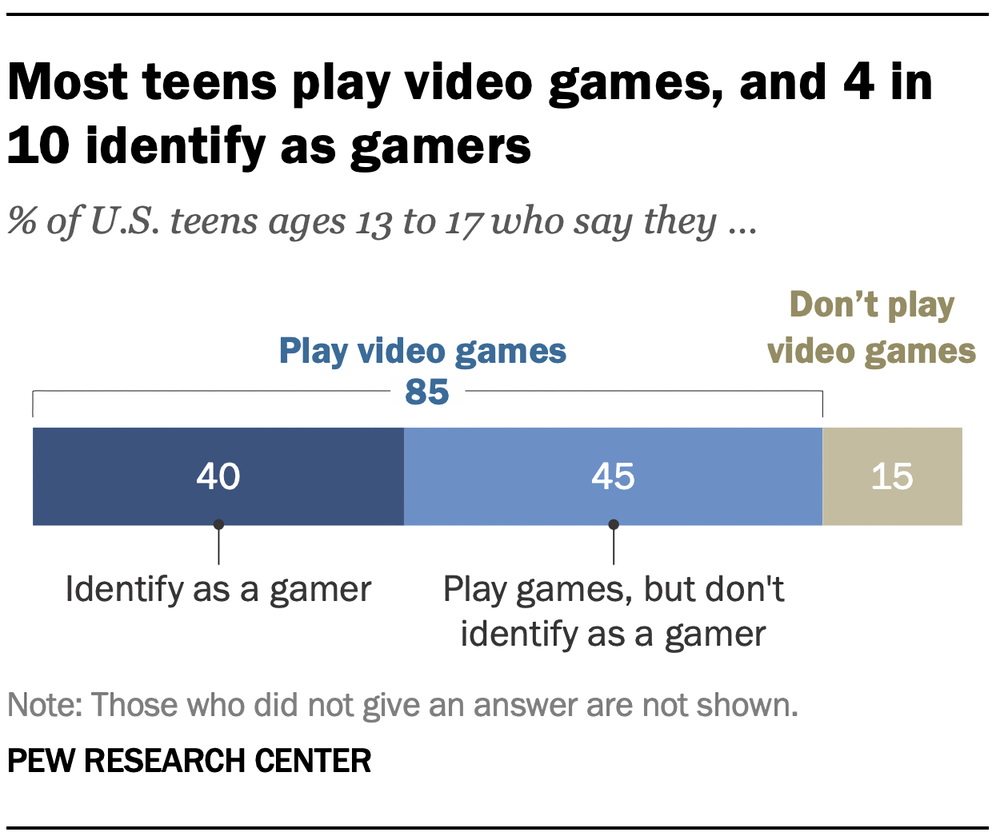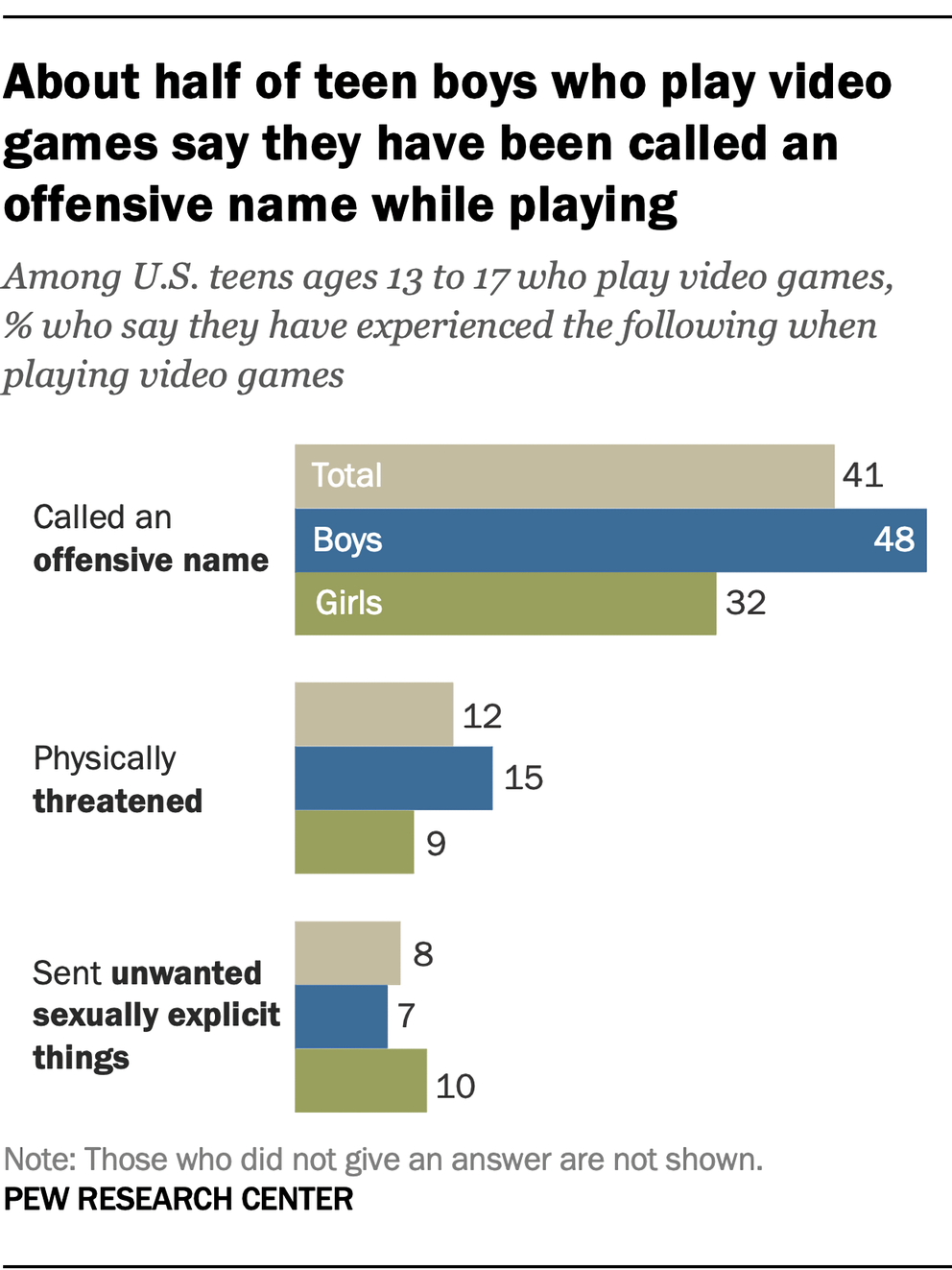The big picture: Debate persists about the influence of video games on youth. Some argue that gaming exposes teens to violence and can hinder their development, while others contend that it fosters essential skills such as problem-solving and teamwork. Rather than consult another so-called expert, Pew Research Center went straight to the source for opinions.
The think tank recently surveyed 1,423 US teens between the ages of 13 and 17 about their video game habits, and came away with some interesting findings.
Survey results reveal that 85 percent of teens play games, and that 41 percent report playing at least once daily – yet only four in 10 self-identify as a "gamer." Notably, teen boys are far more likely to identify as gamers than girls. Most – 79 percent – say they play games on a dedicated console, although smartphones and desktop / laptop computers are also popular choices.

As for why teens game, nearly three out of four – 72 percent – said they play to spend time with others. Of those surveyed, 47 percent said they've made at least one friend playing games online.
More than half of the teens polled said games have helped build their problem-solving skills, although 41 percent also believe gaming has had an adverse impact on their sleep.

The negativity doesn't end there. Four out of five teens said video game-related harassment is a problem for their peers, and 41 percent said they have been called an offensive name during a gaming session. Additionally, 12 percent said they've been physically threatened, while eight percent said they've received unwanted sexually explicit material.
Unsurprisingly, most – 58 percent – feel they are playing just the right amount of games. That is far fewer than the 13 percent that believe they aren't playing enough or the 14 percent that feel they're gaming too often. That said, nearly four out of 10 teens said they have reined in the amount of time they spend playing games.
Image credit: Sean Do
